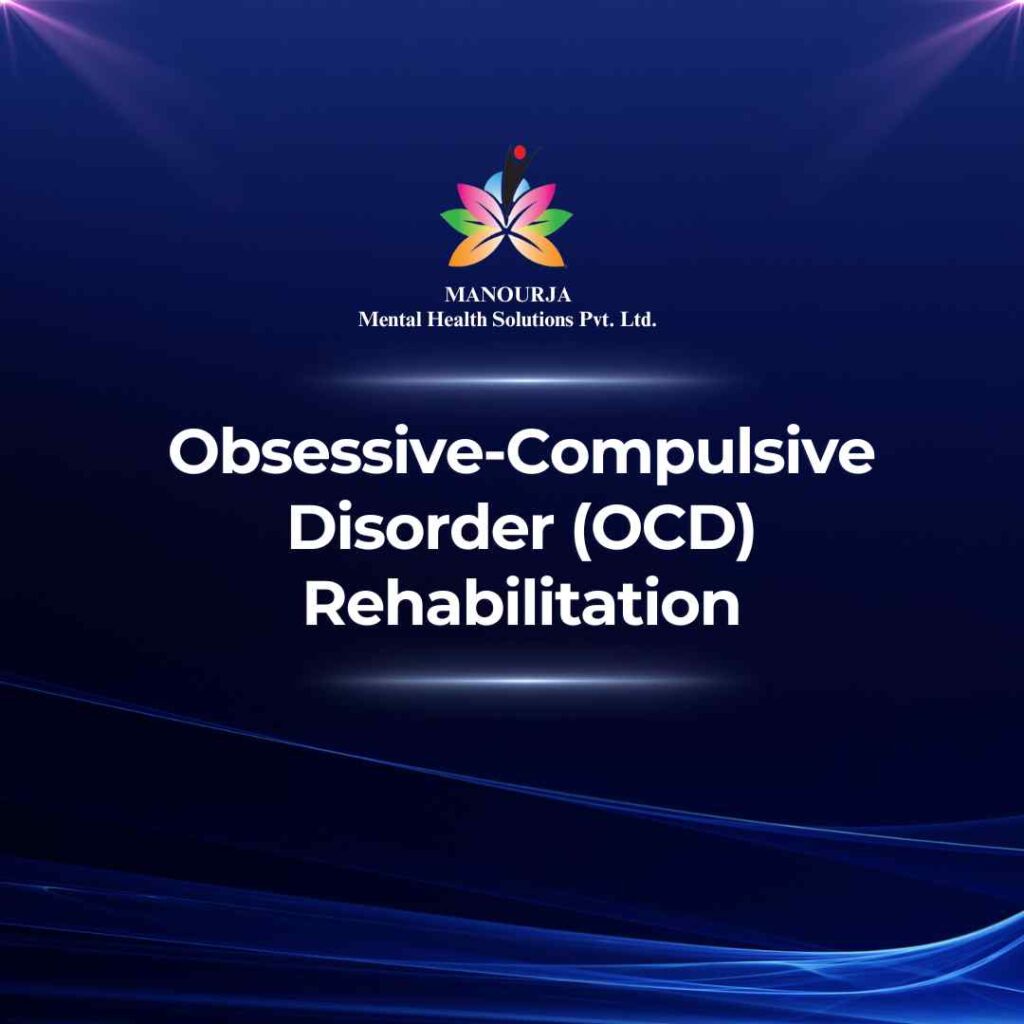Obsessive-Compulsive Disorder (OCD) Rehabilitation

Obsessive-Compulsive Disorder (OCD) is a mental health condition characterized by intrusive, unwanted thoughts (obsessions) and repetitive behaviors or mental acts (compulsions) that the person feels driven to perform in response to these thoughts. Understanding the signs and symptoms, and deciding between outpatient (OPD) and inpatient (IPD) psychosocial rehabilitation, is crucial for effective management and treatment of OCD.
Signs and Symptoms of OCD
Individuals and their family members should be aware of the following signs and symptoms of OCD:
- Obsessions: These are persistent and unwanted thoughts, urges, or images that cause distress or anxiety. Common obsessions include fears of contamination, intense worry about harm coming to oneself or others, and desires for symmetry or orderliness.
- Compulsions: These are repetitive behaviors or mental acts that a person feels compelled to perform in response to an obsession. Typical compulsions include excessive cleaning, checking, counting, orderliness, and repeating certain words or prayers.
- Distress and Impairment: The obsessions and compulsions cause significant distress, consume considerable time (typically more than one hour per day), or significantly interfere with the person’s normal routine, occupational functioning, or social activities.
Factors Influencing the Decision Between OPD and IPD
- Severity of Symptoms: More severe cases of OCD, where compulsions are time-consuming and significantly interfere with daily functioning, might require IPD for more intensive treatment.
- Risk of Harm: If there are fears of self-harm due to OCD symptoms or if the disorder severely impacts one’s ability to care for themselves, IPD may be necessary.
- Support Systems: Availability of strong family or community support can make OPD feasible, allowing the individual to maintain some aspects of their daily life.
- Response to Outpatient Treatment: If previous outpatient treatments have not been effective, or if symptoms have escalated, considering IPD might be appropriate.
Role of Psycho-social Rehabilitation in Treating OCD
Psycho-social rehabilitation for OCD aims to reduce symptoms, improve function, and enhance quality of life through:
- Skill Development: Teaching strategies for managing anxiety and resisting compulsions.
- Cognitive Training: Addressing and restructuring maladaptive beliefs related to obsessions.
- Social Skills Enhancement: Improving interpersonal functioning and reducing social avoidance.
Techniques and Approaches Used at MANOURJA
At MANOURJA, various scientifically-supported methods are employed to support individuals with OCD:
- Cognitive Behavioral Therapy (CBT): Specifically, Exposure and Response Prevention (ERP) is considered the gold standard for treating OCD. This involves exposure to the source of the obsession and refraining from the compulsive behavior.
- Acceptance and Commitment Therapy (ACT): Helps individuals accept their thoughts without acting on them and commit to behavior changes aligned with their values.
- Mindfulness-Based Cognitive Therapy (MBCT): Teaches mindfulness practices to help individuals with OCD become less reactive to distressing thoughts and feelings.
- Group Therapy: Provides peer support and opportunities to learn from others facing similar challenges.
Steps in the Rehabilitation Process at MANOURJA
- Comprehensive Assessment: Detailed evaluation of symptoms, severity, and personal history to tailor the treatment effectively.
- Individualized Treatment Plan: Creating a personalized approach focusing on ERP, along with other therapeutic interventions.
- Active Implementation: Engaging the individual through scheduled therapy sessions and activities aimed at reducing compulsive behaviors.
- Regular Monitoring and Adjustment: Assessing the effectiveness of interventions and making necessary adjustments.
- Long-term Support and Aftercare: Providing ongoing support to maintain treatment gains and prevent relapse.
Effective treatment and psychosocial rehabilitation can significantly improve the ability of individuals with OCD to manage their symptoms and enhance their overall quality of life. The comprehensive approach at MANOURJA equips individuals with the skills and support necessary for recovery and long-term management of OCD.
“Every small step in managing your OCD is a leap towards regaining control of your life.”
